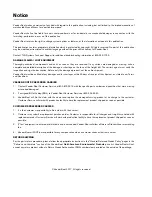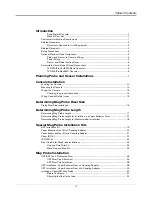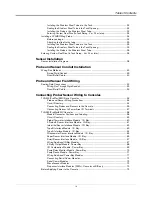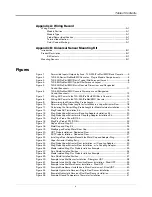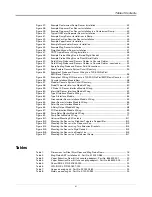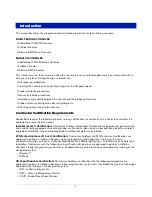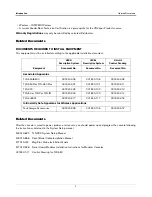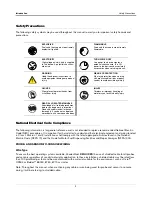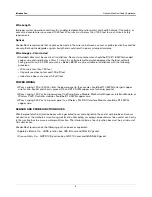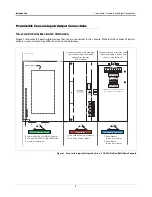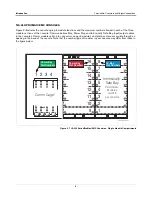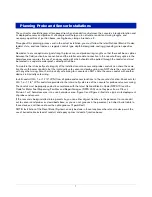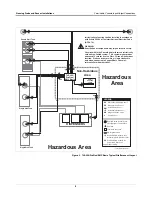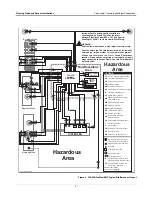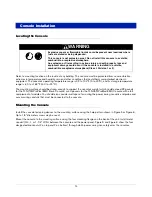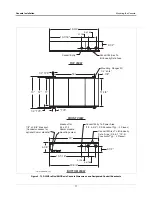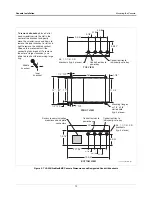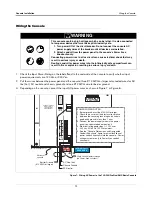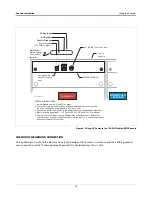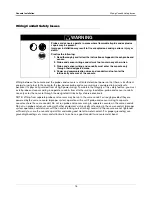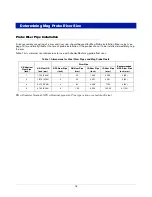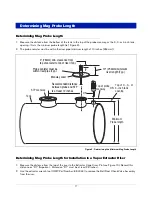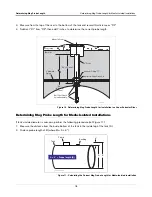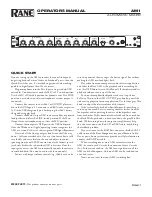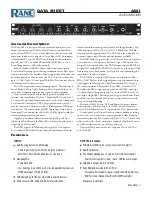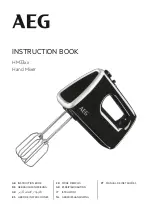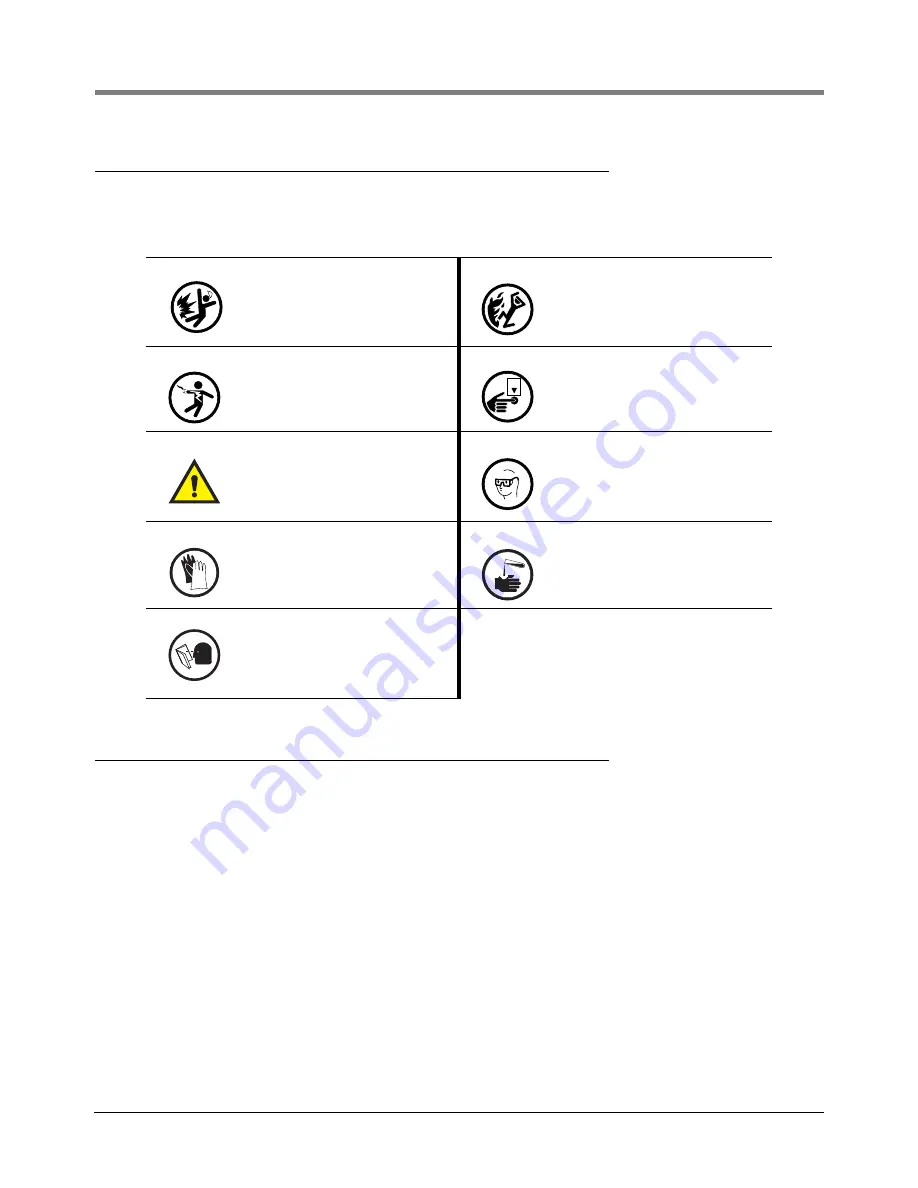
Introduction
Safety Precautions
3
Safety Precautions
The following safety symbols may be used throughout this manual to alert you to important safety hazards and
precautions.
National Electrical Code Compliance
The following information is for general reference and is not intended to replace recommended National Electric
Code (NEC) procedures. It is important for the installer to understand that electrical equipment and wiring located
in Class I, Division 1 and 2 installations shall comply with the latest appropriate Articles found in the National
Electric Code (NFPA 70) and the Code for Motor Fuel Dispensing Facilities and Repair Garages (NFPA) 30A.
PROBE- AND SENSOR-TO-CONSOLE WIRING
Wire Type
To ensure the best operating systems available, Veeder-Root
REQUIRES
the use of shielded cable for all probes
and sensors regardless of conduit material or application. In these installations, shielded cable must be rated less
than 100 picofarad per foot and be manufactured with a material suitable for the environment, such as Carol™
C2534 or Belden™ 88760, 8760, 8770 or similar.
Note: Throughout this manual, when mentioning any cable or wire being used for probe and sensor to console
wiring, it will be referring to shielded cable.
EXPLOSIVE
Fuels and their vapors are extremely
explosive if ignited.
FLAMMABLE
Fuels and their vapors are extremely
flammable.
ELECTRICITY
High voltage exists in, and is supplied
to, the device. A potential shock haz-
ard exists.
TURN POWER OFF
Live power to a device creates a
potential shock hazard. Turn Off
power to the device and associated
accessories when servicing the unit.
WARNING
Heed the adjacent instructions to
avoid equipment damage or personal
injury.
WEAR EYE PROTECTION
Wear eye protection when working
with pressurized fuel lines or epoxy
sealant to avoid possible eye injury.
GLOVES
Wear gloves to protect hands from
irritation or injury.
INJURY
Careless or improper handling of
materials can result in bodily injury.
READ ALL RELATED MANUALS
Knowledge of all related procedures
before you begin work is important.
Read and understand all manuals
thoroughly. If you do not understand
a procedure, ask someone who does.
OFF


